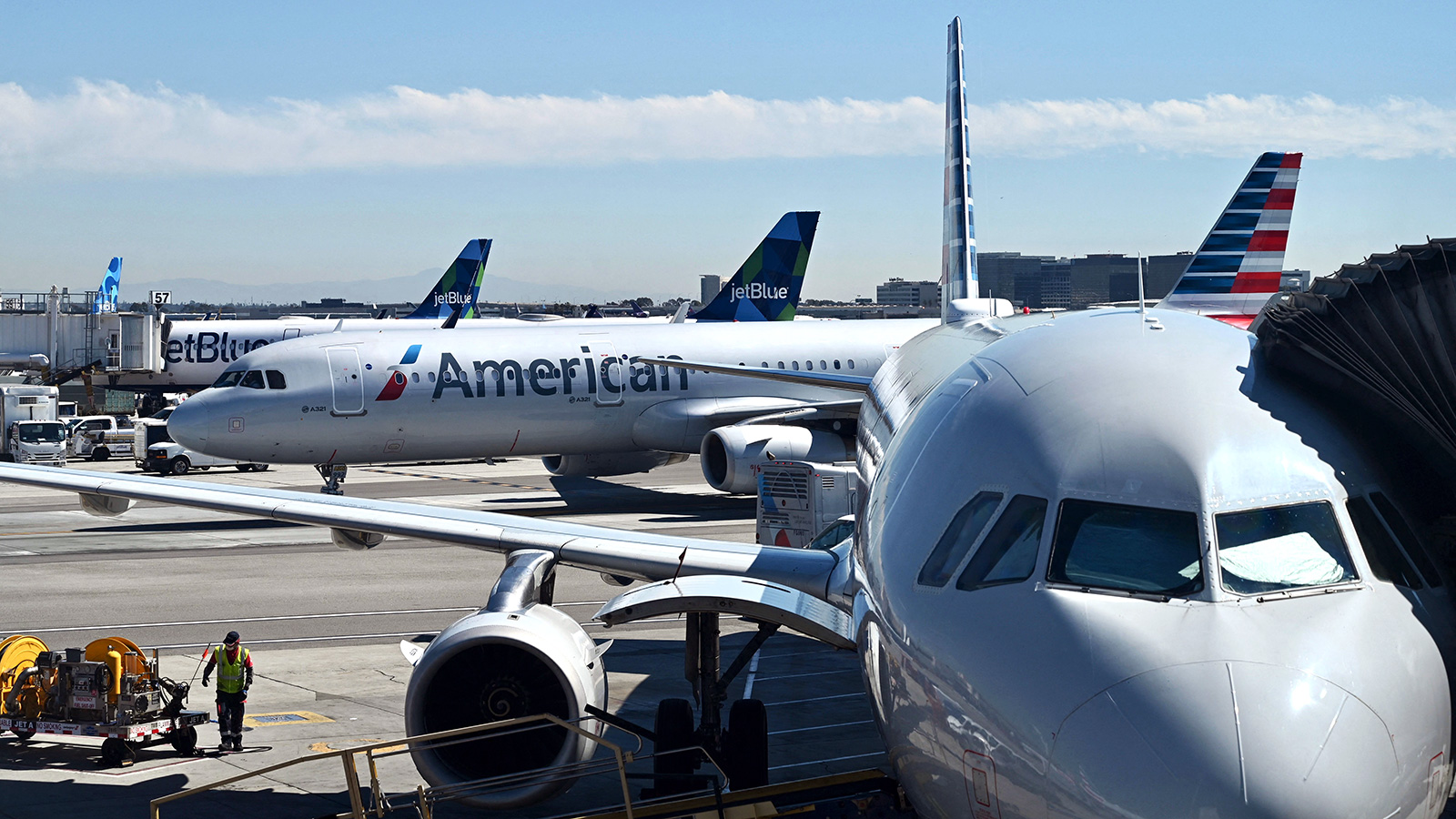The Airline Industry Is Finally Beating 2019, Even In The Face Of Rising Fuel Costs
Travelers spent more on online bookings last month compared to three years ago, but the average ticket price was also higher.
Six of the 10 best performing U.S. airlines combined to drive more online ticket spending this past February than the same month in 2019, according to the Adobe Digital Economy Index. That's a milestone that signifies the industry is emerging from its pandemic doldrums, though the rising cost of jet fuel due to Russian's attack on Ukraine could threaten that momentum.
According to the report, $6.6 billion was spent on flights online last month — six percent better than that same period in 2019 and 18 percent better than in January. However, average air fare is also five percent higher than it was three years ago. This has been welcome news for the largest domestic airlines, with American, Delta and United all trading between two and four percent higher as of Wednesday morning. The industry is optimistic; it's also really trying to ignore the elephant in the room. Courtesy of the New York Times:
The data bodes well for airlines, which have been preparing for months for what the industry expects to be a robust summer travel season. It also matches the optimism that several carriers expressed at an investor conference held by J.P. Morgan on Tuesday.
At the conference, executives of American Airlines and Delta Air Lines said they saw record daily sales last week. In investor updates, Delta said it expected revenue for the quarter to slightly exceed its previous estimates, while United Airlines said corporate travel was improving faster than expected, reaching the highest level since the pandemic began. American said improvement in revenues would "more than offset" the increase in fuel prices, which have spiked since Russia went to war in Ukraine.
As of March 11, the price of jet fuel is 19 percent higher than it was in January and 82 percent higher than a year ago. However, all airlines won't necessarily be hit in equal measure from the increases because some habitually purchase reserves of fuel before they need it. From Fortune:
While some airlines hedge their jet fuel expenditures, purchasing months of reserves in advance, others do not, leaving them exposed to rising prices.
European low-cost carriers Ryanair and Wizz Air are the perfect example of the difference in strategy. Ryanair has hedged 80% of its expected fuel needs at $65 per barrel of oil until March 2023, meaning that it can continue flying with that cheaper fuel. But Hungarian rival Wizz Air does not have a big store of cheap gas and will be hit hard by higher prices. Wizz cut 7% of its flights in March as a result of its lack of fuel hedging.
It's sort of like what Toyota had done with semiconductors before the pandemic: It kept a reserve stock of chips so it didn't feel the squeeze like many other automakers when supply chain bottlenecks began to emerge. Of course, that can only last so long, and once the Japanese automaker burned through its inventory, it was subject to the same drought as everyone else. Depending on how long this lasts, airlines that hedged fuel will find themselves in the same position as the ones that didn't.
The other factor here is whether people will even be able to afford to travel more, given the rising price of everything. You'd might suppose airlines could give willing passengers a bit of a break to keep those seats full but, well: have you ever flown commercially before? Again, the Times:
At the same time, some consumers facing higher prices for goods and services may not have much left to spend on vacations, experts said. And while some budget carriers may target those travelers, there's no guarantee that airlines will be willing to cut fares, especially when facing steep debt accrued during the pandemic and pressure from shareholders eager to see profits, said Henry Harteveldt, a travel industry analyst and the president of Atmosphere Research Group.
"Airline C.E.O.s are not in a generous state of mind these days, nor are their C.F.O.s, so I'm not expecting airlines to discount seats to the same extent that we may have otherwise seen," he said. "I think that there's a lot of pressure on airlines to keep their airfares as high they can."
Airlines are ultimately looking forward to the summer travel season no matter what happens, and they have every reason to. People keep gladly paying well over sticker for cars and certainly not always because they need new cars. Leisure purchases, like graphics cards and gaming consoles, are dropping in markup over MSRP to two-year lows, but that still means a 30 to 40 percent premium. Airlines will probably be just fine, don't you worry. And if they aren't, we'll just bail them out again.
